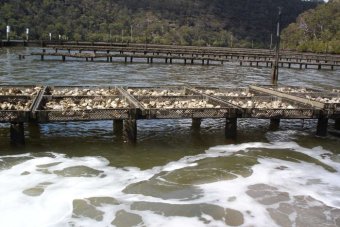Rising ocean temperatures could cause certain types of oysters to absorb more toxins, potentially making them a health hazard to humans, scientists have found.
Researchers from the University of Technology Sydney (UTS) and the New South Wales Government found warmer oceans could affect the way shellfish absorb naturally occurring Paralytic Shellfish Toxins, which are produced by certain species of microalgae.
Associate Professor Shauna Murray, from UTS, said the toxin uptake was affected by oysters’ metabolism rates, rather than the amount of the algae they ate.
“We used three different species of oysters and we found that they differed in the amount of toxins they took up,” she said.
The research, published in the Global Change Biology, was conducted on the native Sydney rock oyster and the Pacific oyster in a large-scale feeding experiment at two different temperatures.
The temperatures were selected to reflect current and forecast climate scenarios, to demonstrate the potential affects of climate change.
The researchers found the toxin removal process to be slower at warmer temperatures in two of the three types of oysters.
The diploid form of the Pacific oyster and the Sydney rock oyster absorbed more toxins, but the triploid form of the Pacific oyster absorbed fewer.
Warmer waters also caused an increase in frequency and intensity of algal blooms.
The researchers said the findings would help farmers and food authorities make decisions about the types of oysters to grow for consumption.
“It’ll help aquaculture farmers and public health bodies like NSW Food Authority, who run the program, so they know what to look for in the monitoring study and also for planning in the future as waters warm,” Associate Professor Murray said.
Lead author Hazel Farrell said NSW was considered a “hotspot” for seawater temperature increases.
“It’s crucial to understand factors affecting accumulation of biotoxins in shellfish so we can design the right management strategies that take into account species-specific effects associated with environmental change,” Dr Farrell said.

